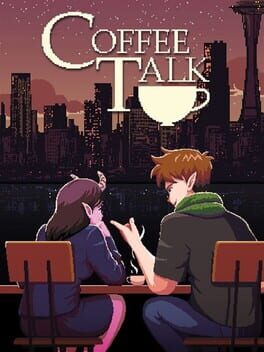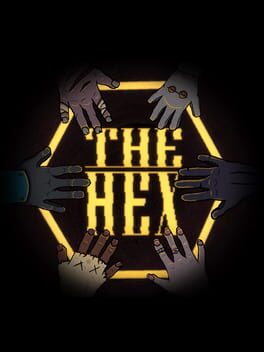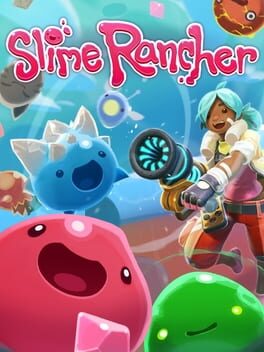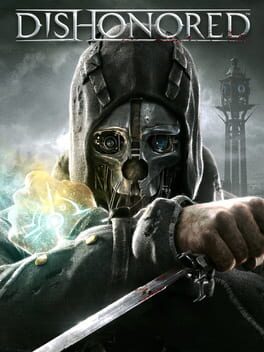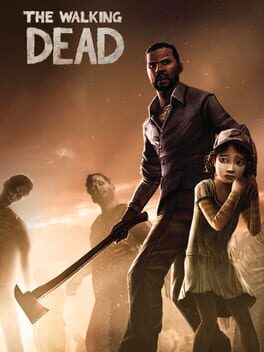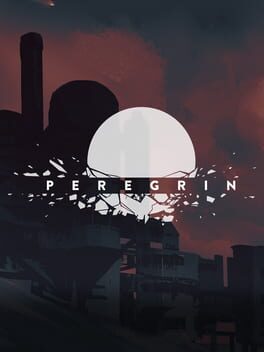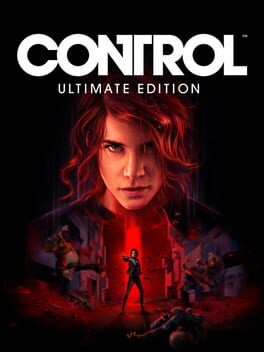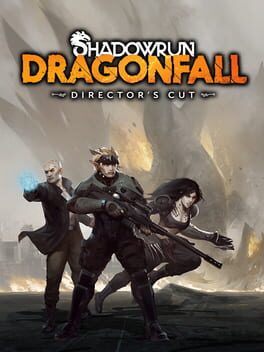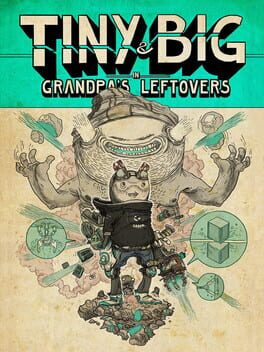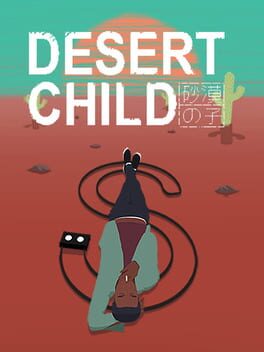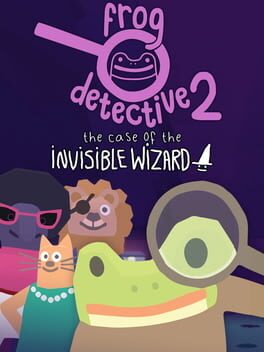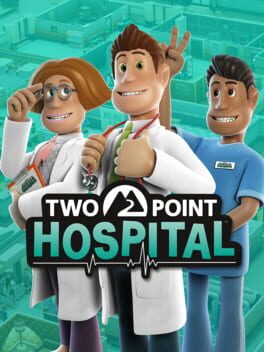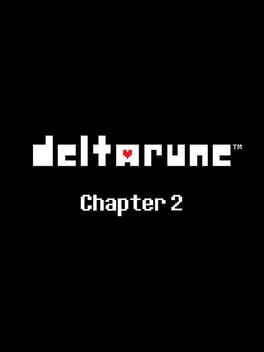S_Murphy
2020
2018
2016
2012
2021
2012
I'm unaware that I'm unlikely to say anything that hasn't been said on a hit game that's nearing a decade old so I'll keep my thoughts short.
Playing TWD for the first time is a treasure, even ten years on. It is legitimately a masterwork in storytelling in videogames and I am very glad that I played it.
Playing TWD for the first time is a treasure, even ten years on. It is legitimately a masterwork in storytelling in videogames and I am very glad that I played it.
I will freely admit that, having pretty much no interest in trains and by extension train stations, I am likely not the target audience for a game named train station renovation. Despite this, I do quite like games that I can idly potter away at while listening to a podcast or video and I just think TSR is pretty mediocre in that regard.
The cleaning is fairly simple and dull and the renovation doesn't have enough assets to really function properly. Each area you renovate requires a minimum of a few different object classes. One of the most common of these classes is the broadly name "decorations" class. The problem is that pretty much the only objects the game provides you in this category are pot plants and office supplies so I had to keep filling my bathrooms with birds of paradise (which despite probably helping with the smell after someone's had a train station bean burrito, didn't really meet the aesthetic I was going for).
I haven't played house flipper so I can't compare it to that so I'll just say if you like trains you'll probably like this and if you don't then you probably wont.
The cleaning is fairly simple and dull and the renovation doesn't have enough assets to really function properly. Each area you renovate requires a minimum of a few different object classes. One of the most common of these classes is the broadly name "decorations" class. The problem is that pretty much the only objects the game provides you in this category are pot plants and office supplies so I had to keep filling my bathrooms with birds of paradise (which despite probably helping with the smell after someone's had a train station bean burrito, didn't really meet the aesthetic I was going for).
I haven't played house flipper so I can't compare it to that so I'll just say if you like trains you'll probably like this and if you don't then you probably wont.
2017
I think a lot of what Peregrin is trying to do is fairly interesting but I don't think it's very successful at anything it attempts. Peregrin is a linear, story focused puzzle game with themes of grief and decay.
The main hook in the narrative in Peregrin is that humanity has fallen into ruin due to becoming reliant on an element that they believed could give them infinite lifespans. The main character is on a journey to repent to the gods as well as deal with her own grief. I think this set up is pretty good. Humanity loses sight of what it means to grieve through defeating death is a strong narrative hook for a story about how death and grieving is a neccessiary part of the human experience. The problem that Peregrin runs into is that that kind of story is one to be told subtly and Peregrin is about as subtle as a freight train. Characters speak at each other so bluntly that its impossible to miss any meaning and the narrator has a habit of outright saying how our main character is feeling rather than trusting us to work it out ourselves. This issue with the narrator extends to some gameplay as well as the writing has a habit of telling us about a grand view or a terrifying sight that the protagonist is seeing without actually showing it to us.
The gameplay itself is fairly bland as far as puzzle games go. The protagonist can mind control different types of animals, each having a unique single ability that they can use to solve different environmental puzzles. This isn't a bad set of mechanics to create puzzles with, but I never felt the puzzles were especially interesting or satisfyingly challenging. Most of my time spent on them wasn't spent thinking of a solution but waiting for the creatures to complete their tediously slow walk cycles. On more than one occasion I solved the current puzzle immediately but had to spend three minutes slowly moving the creatures from place to place. The game is also littered with small issues like poor signposting and buggy pathfinding
Peregrin has some good ideas, and the people who made it obviously have a great deal of talent but the concept is poorly executed and I don't think I'm ever going to come back to it.
The main hook in the narrative in Peregrin is that humanity has fallen into ruin due to becoming reliant on an element that they believed could give them infinite lifespans. The main character is on a journey to repent to the gods as well as deal with her own grief. I think this set up is pretty good. Humanity loses sight of what it means to grieve through defeating death is a strong narrative hook for a story about how death and grieving is a neccessiary part of the human experience. The problem that Peregrin runs into is that that kind of story is one to be told subtly and Peregrin is about as subtle as a freight train. Characters speak at each other so bluntly that its impossible to miss any meaning and the narrator has a habit of outright saying how our main character is feeling rather than trusting us to work it out ourselves. This issue with the narrator extends to some gameplay as well as the writing has a habit of telling us about a grand view or a terrifying sight that the protagonist is seeing without actually showing it to us.
The gameplay itself is fairly bland as far as puzzle games go. The protagonist can mind control different types of animals, each having a unique single ability that they can use to solve different environmental puzzles. This isn't a bad set of mechanics to create puzzles with, but I never felt the puzzles were especially interesting or satisfyingly challenging. Most of my time spent on them wasn't spent thinking of a solution but waiting for the creatures to complete their tediously slow walk cycles. On more than one occasion I solved the current puzzle immediately but had to spend three minutes slowly moving the creatures from place to place. The game is also littered with small issues like poor signposting and buggy pathfinding
Peregrin has some good ideas, and the people who made it obviously have a great deal of talent but the concept is poorly executed and I don't think I'm ever going to come back to it.
Control is a really fun third person shooter with some strong narrative theming and a few unfortunate missed opportunities.
Jesse's power set is a joy to use. Hitting someone over the head with a forklift is as comedic as you'd hope and even more so when their head explodes into vapourized sangrita blast. I do think that the novelty wears a little after a few hours though. Not because it's any less enjoyable, making someone become one with a desk lamp will always be funny, but because the regular enemies get more and more chunky and you lose some vermisilatude when bland grunt 38 gets back up after playing catch with a vending machine. Each power saw even use throughout my playthrough and learning to use all of them quickly and efficently in a fight became a instant highlight.
The main story is well paced with a mix of almost metroidvania like exploration and some really amazing set pieces. The ongoing conspiracy that Jesse finds herself wrapped up in is equal parts captifying and confusing. For the benefit of anyone reading this who hasn't played the game I'll just say that there's a certain section towards the end of the game which totally subverted what I was expecting and it might be ione of my favorite set pieces of a shooter game, ever.
I think the moment that I realised how much I was enjoying the game's story was when I realised I had been reading every single narrative pickup (audio logs, text logs, videos). Considering that this is widely considered the absolute bottom of the narrative barrel when it comes to most games, the kind of thing thats usually included out of obligation rather than to really contribute to the narrative experience, it speaks to the quality of the games writing.
It's a little suprising then, considering the quality of the writing in general, that the sidequests that I tried were pretty fustrating and poorly paced. I think this could have been a really great opportunity to explore some of the weirder altered items and I can't help but feel like it's missed potential.
It should also go without saying if you've seen anything of the game but Control is visually stunning. The brutalist style mixed with the unique visual effects really give the game a distinct visual identity.
After I finished the game I was super excited to try the DLC's until I found out that steam lists the standard edition of the game (the original edition) as the ultimate edition (special release with all the DLC) in your library and I actually didn't own any of them. That excitement was further lost when I realised that 505 games had pulled the DLC off of steam when releasing the ultimate edition, meaning I would have to rebuy the entire game if I wanted to play the DLC. This isn't something that will effect anyone buying the game nowadays as the standard edition has also been delisted but I think it's worth noting and calling out these anti-consumer decisions.
Overall, Control is pretty dang good and I hope Remedy are able to make a sequel that's able to fully live up to the premise and worldbuilding they've established here.
Jesse's power set is a joy to use. Hitting someone over the head with a forklift is as comedic as you'd hope and even more so when their head explodes into vapourized sangrita blast. I do think that the novelty wears a little after a few hours though. Not because it's any less enjoyable, making someone become one with a desk lamp will always be funny, but because the regular enemies get more and more chunky and you lose some vermisilatude when bland grunt 38 gets back up after playing catch with a vending machine. Each power saw even use throughout my playthrough and learning to use all of them quickly and efficently in a fight became a instant highlight.
The main story is well paced with a mix of almost metroidvania like exploration and some really amazing set pieces. The ongoing conspiracy that Jesse finds herself wrapped up in is equal parts captifying and confusing. For the benefit of anyone reading this who hasn't played the game I'll just say that there's a certain section towards the end of the game which totally subverted what I was expecting and it might be ione of my favorite set pieces of a shooter game, ever.
I think the moment that I realised how much I was enjoying the game's story was when I realised I had been reading every single narrative pickup (audio logs, text logs, videos). Considering that this is widely considered the absolute bottom of the narrative barrel when it comes to most games, the kind of thing thats usually included out of obligation rather than to really contribute to the narrative experience, it speaks to the quality of the games writing.
It's a little suprising then, considering the quality of the writing in general, that the sidequests that I tried were pretty fustrating and poorly paced. I think this could have been a really great opportunity to explore some of the weirder altered items and I can't help but feel like it's missed potential.
It should also go without saying if you've seen anything of the game but Control is visually stunning. The brutalist style mixed with the unique visual effects really give the game a distinct visual identity.
After I finished the game I was super excited to try the DLC's until I found out that steam lists the standard edition of the game (the original edition) as the ultimate edition (special release with all the DLC) in your library and I actually didn't own any of them. That excitement was further lost when I realised that 505 games had pulled the DLC off of steam when releasing the ultimate edition, meaning I would have to rebuy the entire game if I wanted to play the DLC. This isn't something that will effect anyone buying the game nowadays as the standard edition has also been delisted but I think it's worth noting and calling out these anti-consumer decisions.
Overall, Control is pretty dang good and I hope Remedy are able to make a sequel that's able to fully live up to the premise and worldbuilding they've established here.
Shadowrun Dragonfall is a truly great CRPG that I really enjoyed. It's been a joy to fall in love with each and every member of the team and delve into their past and backstories over time.
I also think the game handles it's themes really well, especially for a game. Where most games tend to beat you over the head with their ideas, Dragonfall presents a variety of conflicting ideas and leaves you to decide what you agree with.
The combat is well balanced while being challenging all throughout and I was able to get through the game without too much frustration even while playing as a decker (hacker in shadowrun).
I was also pleasantly surprised that all of the choices I made during character creation kept being relevant throughout. There was a really fun moment where an elf was going on about how elves have magical blood and my character (also an elf) was able to just say "no we don't you fucking dork".
Great game, heavily recommend it.
I also think the game handles it's themes really well, especially for a game. Where most games tend to beat you over the head with their ideas, Dragonfall presents a variety of conflicting ideas and leaves you to decide what you agree with.
The combat is well balanced while being challenging all throughout and I was able to get through the game without too much frustration even while playing as a decker (hacker in shadowrun).
I was also pleasantly surprised that all of the choices I made during character creation kept being relevant throughout. There was a really fun moment where an elf was going on about how elves have magical blood and my character (also an elf) was able to just say "no we don't you fucking dork".
Great game, heavily recommend it.
Tiny and Big is one of those rare games that I'd recommend to just about anybody. It's only two hours long, it's often on sale for less than the price of a pack of gum and the core mechanic is great.
Platformer adventure games often neglect their writing but TaB does just enough that I was pretty thoroughly entertained. Also the music's good. Like. Real good.
Platformer adventure games often neglect their writing but TaB does just enough that I was pretty thoroughly entertained. Also the music's good. Like. Real good.
2018
Desert Child is an a game I played about an hour of before shelving about a 3rd of the way through. Which makes it very strange that I'd probably reccomend the experience a great deal. I think this comes down to the fact that while Desert Child's core game loop is not great, it does so many other things so well or at least interestingly that it's worth checking out for the unique experience alone.
The game opens with the protagonist trying to get off earth, now in the far future existing as a barren desert mostly void of life (apart from loners on hoverbikes), through scraping together enough cash (by racing hoverbikes) to get to mars, the new frontier of humanity, in order to win a hover bike Grand Prix. If you've noticed the theme, almost all conflicts within desert child are resolved entirely through high-speed hoverbike races including money matches, pizza delivery, and hacking into corporate data vaults. The formula for each in-game day generally follows the formula of doing a maintenence task or too such as eating or fixing/upgrading the bike before hopping on the bike for another death defying thrill ride.
I'm not going into the fairly mediocre bike gameplay itself for fear of writing longer than it took me to play the game but also because the real meat of desert child lies more in it's little moments.
The moment when you finally make it to mars is overwhelming in a way I've rarely seen in games. Until now, all you've known are three stores on a tiny strip in the desert. Now the city expands all around you instantly. In a initially bizzare design decision, Desert Child lacks any kind of map and switches camera angle Resi style whenever you enter a new street, disorienting you and making it easy to get lost in the urban sprawl. This is fustrating at first but after a few in game days you'll start to learn which streets interconnect, gaining a mental map of how to traverse your enviroment.
I can understand that this decision isn't going to be appreciated by most players but as someone discontent with modern open world design, specifically waypoint based navigation, it was refreshing to be forced to think about direction and navigation. Choices like this are what adds to the life and feeling of Desert Child's city. There are secrets in every nook and cranny of it's world that beckon to the player and I just wish this sort of immersive depth extended to it's actual core gameplay.
Once you get to mars itself, you're asked to raise $10'000 cash in order to buy a ticket into the Grand Prix. When I got to this point I realized that I'd have to do about 50 races to just buy the ticket without factoring in repairs and eating so I decided I had had my fill. Overall, Desert Child isn't very great as an actual game but if you're interested in the medium of games and how they can present themselves I think it's worth a look.
The game opens with the protagonist trying to get off earth, now in the far future existing as a barren desert mostly void of life (apart from loners on hoverbikes), through scraping together enough cash (by racing hoverbikes) to get to mars, the new frontier of humanity, in order to win a hover bike Grand Prix. If you've noticed the theme, almost all conflicts within desert child are resolved entirely through high-speed hoverbike races including money matches, pizza delivery, and hacking into corporate data vaults. The formula for each in-game day generally follows the formula of doing a maintenence task or too such as eating or fixing/upgrading the bike before hopping on the bike for another death defying thrill ride.
I'm not going into the fairly mediocre bike gameplay itself for fear of writing longer than it took me to play the game but also because the real meat of desert child lies more in it's little moments.
The moment when you finally make it to mars is overwhelming in a way I've rarely seen in games. Until now, all you've known are three stores on a tiny strip in the desert. Now the city expands all around you instantly. In a initially bizzare design decision, Desert Child lacks any kind of map and switches camera angle Resi style whenever you enter a new street, disorienting you and making it easy to get lost in the urban sprawl. This is fustrating at first but after a few in game days you'll start to learn which streets interconnect, gaining a mental map of how to traverse your enviroment.
I can understand that this decision isn't going to be appreciated by most players but as someone discontent with modern open world design, specifically waypoint based navigation, it was refreshing to be forced to think about direction and navigation. Choices like this are what adds to the life and feeling of Desert Child's city. There are secrets in every nook and cranny of it's world that beckon to the player and I just wish this sort of immersive depth extended to it's actual core gameplay.
Once you get to mars itself, you're asked to raise $10'000 cash in order to buy a ticket into the Grand Prix. When I got to this point I realized that I'd have to do about 50 races to just buy the ticket without factoring in repairs and eating so I decided I had had my fill. Overall, Desert Child isn't very great as an actual game but if you're interested in the medium of games and how they can present themselves I think it's worth a look.
Frog Detective 2 is a pretty mediocre visual novel/walking sim about a frog that is also a detective.
It's not really much of a game at all to be honest, there are 2 decisions within it's entire runtime, one of which is where to place stickers on your detective notebook, and it lacks any sort of traditional gameplay. I'm not boring enough to think these sorts of experiences are without merit but I do think that they have to support themselves with some exceptional writing. On that front, frog detective is occasionally charming but generally a little too quirky for my taste.
The visuals are nice and the music's fitting even if the setting lacks a lot of variety.
Overall, I'm really interested in linear narrative game experiences and I wish that this was more fulfilling but right now frog detective could use a little more actual detective work in it's series.
It's not really much of a game at all to be honest, there are 2 decisions within it's entire runtime, one of which is where to place stickers on your detective notebook, and it lacks any sort of traditional gameplay. I'm not boring enough to think these sorts of experiences are without merit but I do think that they have to support themselves with some exceptional writing. On that front, frog detective is occasionally charming but generally a little too quirky for my taste.
The visuals are nice and the music's fitting even if the setting lacks a lot of variety.
Overall, I'm really interested in linear narrative game experiences and I wish that this was more fulfilling but right now frog detective could use a little more actual detective work in it's series.
2018
2021
